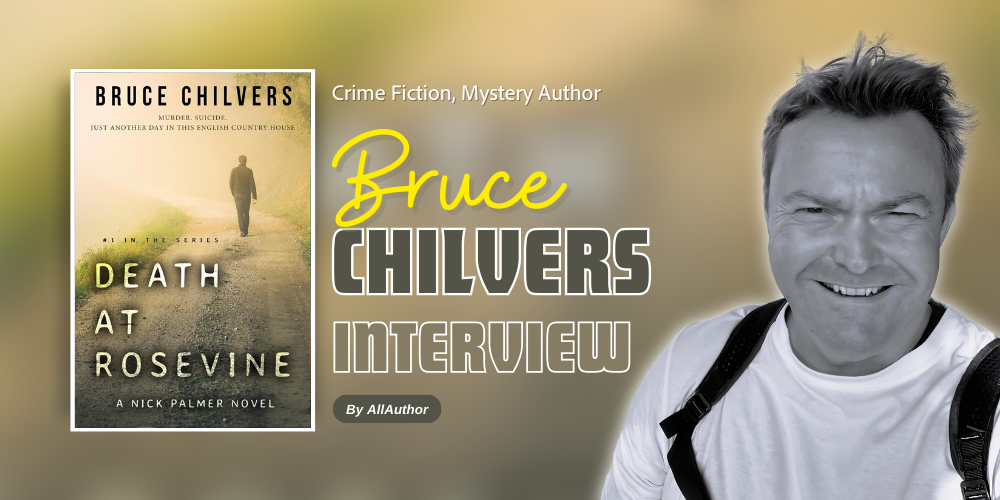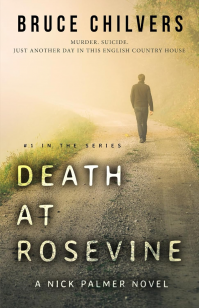What first drew you to writing crime fiction?
The writers I grew up reading often wrote crime fiction, even if in the loosest sense (like Graham Greene and Ian Fleming and John Le Carre). I loved the work of authors like Raymond Chandler, John D. MacDonald and Robert B. Parker. There are many others. Patricia Highsmith, P.D. James, Agatha, of course. Books that are witty and insightful and beautifully written, with a strong sense of time and place and character. All the good ones have a certain atmosphere. I believe that the best of their writing equals and often trumps that of many authors who are popularly regarded as more literary and therefore, better.
“Death at Rosevine” begins with what seems like an accidental death. What inspired you to explore a mystery layered with past and present tragedies?
Everything is rooted in something else.
The setting of the Rosevine country estate plays a key role in the story’s atmosphere. Is it based on a real place or purely fictional?
Real. I won't say where.
Lady Mary Buchanan is described as being hated in the community. What went into crafting such a polarizing character?
She's just a nasty old woman. They are out there. Like nasty old men, and nasty young women and men.
Susan Buchanan is quite compelling—aristocratic, determined, and carrying childhood trauma. How did her character evolve as you wrote?
Quite? She wouldn't be happy to hear herself described in such a lukewarm fashion! I like Susan, and liked her more the more I wrote about her. She's privileged and all the rest of it, but would you swap places with her?
PI Nick Palmer is initially reluctant to take the case. What drew you to create a detective who hesitates rather than dives straight in?
At first he thought this particular case was a waste of time, hence the hesitation.
The story explores legacy, secrets, and the weight of the past. What themes were most important to you while writing this novel?
I don't think about themes when I'm writing. Tone, maybe. Plot, characterisation, dialogue, story.
How did you approach balancing mystery, character depth, and pacing in a story that spans decades?
Carefully.
Did writing scenes of emotional trauma—like Susan discovering her father’s body—pose any particular challenges?
No (apart from getting the words right).
Are you a plotter or a pantser when it comes to mystery writing? Did you know the ending before you began?
The ending, yes, broadly, although not the finer details. What does pantser mean? I'm guessing, Seat of pants? I don't think you should make a habit of using this word, MadyEmoji. In this genre I think plotting is important. No one likes a padded crime novel, right?
What was the hardest part of writing Death at Rosevine?
Stopping editing.
What techniques did you use to plant red herrings and keep readers guessing?
No techniques that I'm aware of.
Living in London, does your environment influence your storytelling or the kind of mysteries you write?
Not really because these novels are set in Devon and Cornwall. London does crop up, but not in a major way. Not yet, anyway
Can we expect more cases for Nick Palmer in the future—or perhaps more stories tied to Rosevine?
Palmer yes, it's a series. Rosevine, nothing planned.
What has your AllAuthor experience been like so far? What are some highlights?
All good.



